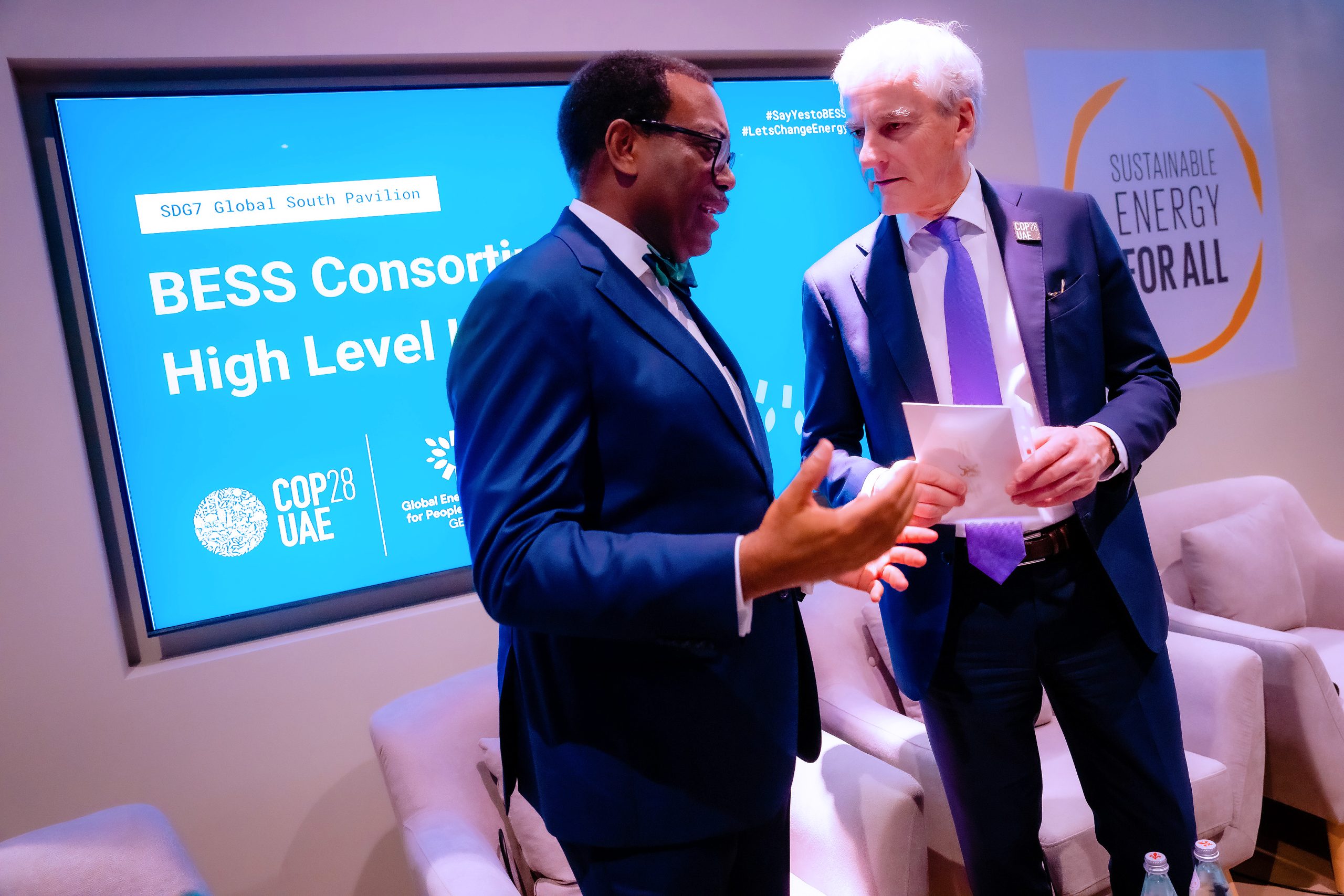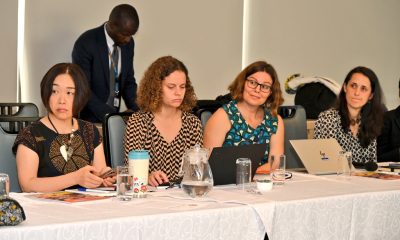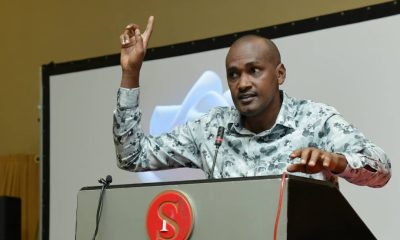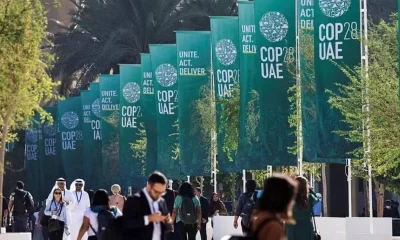At the ongoing COP28, several African countries have committed to transforming the continent’s energy landscape by joining the Battery Energy Storage Systems (BESS) Consortium, a pioneering initiative launched by the Global Leadership Council. This collaborative effort aims to develop advanced energy storage solutions, fostering innovation and propelling Africa towards sustainable and renewable energy sources.
Nine African nations—Burkina Faso, Egypt, Ghana, Kenya, Malawi, Mauritania, Mozambique, Nigeria, and Togo—have formally expressed their interest in joining the BESS Consortium. This commitment binds them to actively pursue energy storage goals, with an initial target of 5 GW by the end of 2024 and an ambitious roadmap to achieve 400 GW of renewable energy by 2030.
The BESS Consortium is backed by influential resource partners, including the African Development Bank, World Bank, Asian Development Bank, Inter-American Development Bank, Agence Française de Développement (AFD), Africa50, and Masdar. These partners will play a crucial role in supporting member countries, preparing projects, enhancing regulatory environments, and mobilizing both private and public investments.
Leaders from member nations have expressed their enthusiasm for this groundbreaking initiative. Malawi’s President, Dr. Lazarus Chakwera, emphasized the importance of projects like BESS Consortium in shaping a low-carbon future. Mauritania’s Minister of Petroleum, Mines, and Energy, Nany Ould Chrougha, highlighted the crucial role of battery storage for his country, which is already heavily reliant on renewable energy.
Dr. Akinwumi Adesina, President of the African Development Bank, expressed pride in being at the forefront of this transformative journey. He stressed the commitment to driving progress through strategic partnerships and financial commitments. Adesina also highlighted the alignment between the BESS Consortium and the bank’s flagship Desert to Power initiative.
Global collaboration
The BESS Consortium is not limited to African nations alone. Barbados, Belize, and India have also joined the initiative. Barbados’ Prime Minister, Mia Mottley, emphasized the country’s dedication to supporting concrete deliverables on climate action and financing. The collaboration reflects a global commitment to improving access to battery energy storage systems and driving the energy transition.
Global leadership council’s role
The Global Leadership Council, a high-level coalition within the Global Energy Alliance for People and Planet, plays a central role in bringing together leaders from multilateral development banks, development finance institutions, international agencies, NGOs, corporate executives, and government representatives. Dr. Rajiv J. Shah, President of the Rockefeller Foundation and Co-chair of the Global Leadership Council, emphasized the significance of the BESS Consortium in overcoming barriers to renewable energy adoption.
There fore, the formation of the BESS Consortium marks a significant step towards revolutionizing Africa’s energy landscape. With the collective commitment of African nations and global partners, the initiative not only addresses the immediate energy storage needs but also sets the stage for achieving substantial renewable energy goals by 2030.
















